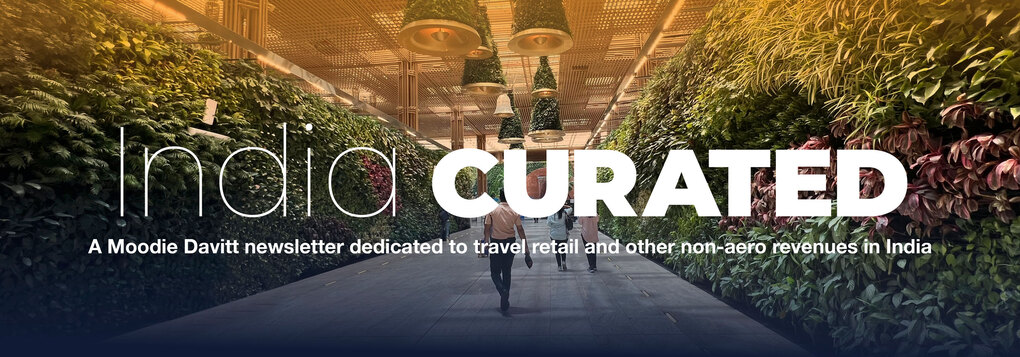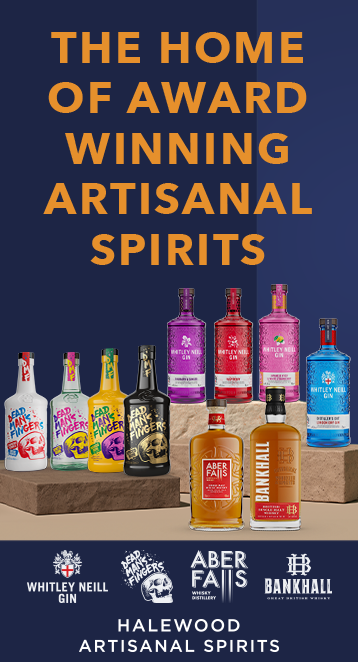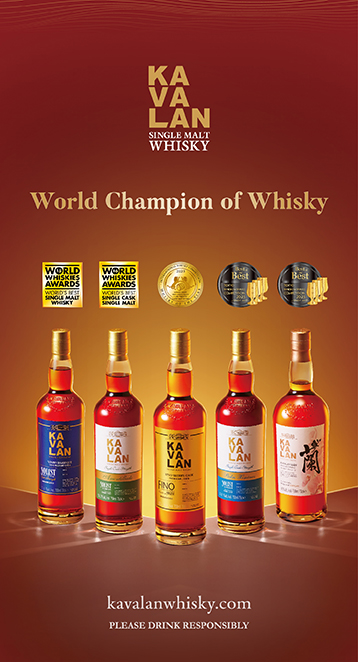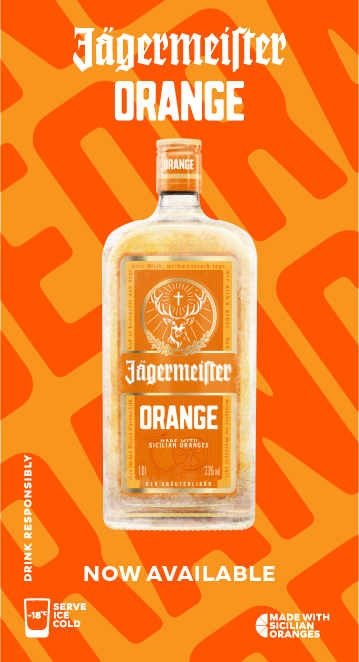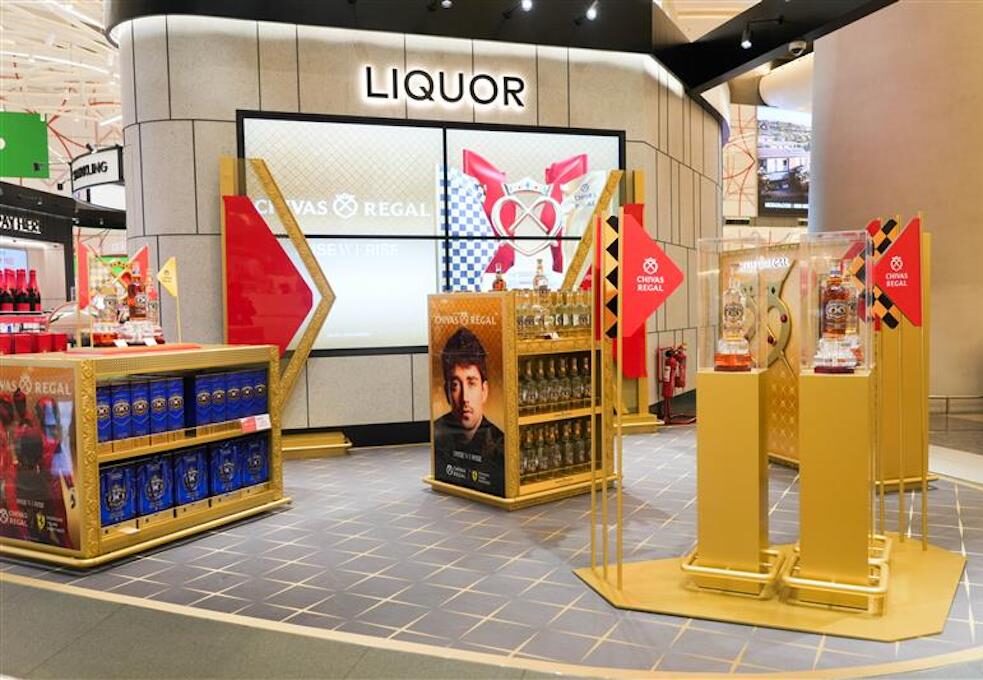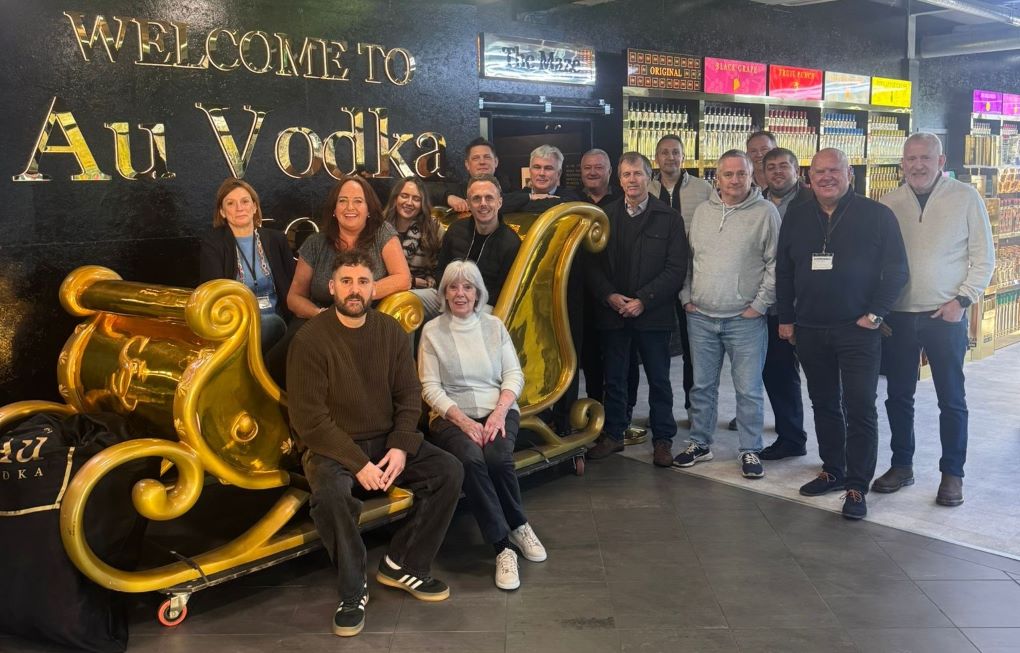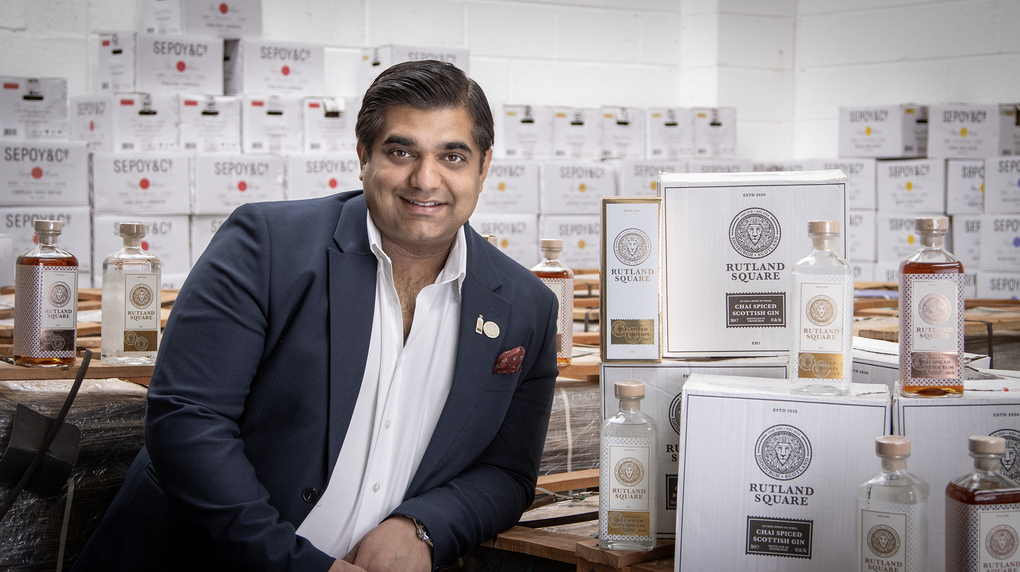
Prologue: It’s a personal tale that originates in the tea plantations of Assam, northeastern India, then journeys to Edinburgh, Scotland. It’s a brand narrative that blends Indian heritage and Scottish refinement. And it’s a deeply human story of a life’s work born of family legacy, a daring entrepreneurial spirit, and an all-defying determination.
 Meet Nishant Sharma, Founder & CEO of Edinburgh-based Rutland Square Spirits, a company that started with a century-old family recipe and the idea of blending Indian chai with Scottish gin. That idiosyncratic vision has flourished into a £30 million (US$40 million), 100,000-case brand that has attracted the investment interest of famed Bollywood actor and entrepreneur Vivek Oberoi.
Meet Nishant Sharma, Founder & CEO of Edinburgh-based Rutland Square Spirits, a company that started with a century-old family recipe and the idea of blending Indian chai with Scottish gin. That idiosyncratic vision has flourished into a £30 million (US$40 million), 100,000-case brand that has attracted the investment interest of famed Bollywood actor and entrepreneur Vivek Oberoi.
Founded by Sharma in Edinburgh in 2021, Rutland Square Spirits represents a seamless blend of heritage and modern craftsmanship, distilled in Scotland, rooted in India.
In this remarkable conversation with The Moodie Davitt Report Founder & Chairman Martin Moodie, Sharma guides us through the pivotal moments that shaped the brand, from turning his back on a successful banking career, to crafting the world’s first chai-spiced gin, to the ongoing pursuit of a dream – a whisky distillery that bridges two continents.
He unpacks the Indian spirit of constant hustle, the emotional legacies and the deep-seated ambition that drives his company forward – and ultimately back to its Assam roots.
On the record with Nishant SharmaOn becoming an entrepreneur: I had a moment of realisation. I thought, “The kind of effort I’m putting into building someone else’s business – why not put that into building something of my own?” It wasn’t driven by money or success. It was more about legacy – what I would leave behind. On the pressures of starting a business: I’ll be honest, this business almost killed me. It gave me a heart attack and I ended up in hospital for a week. I’ll never forget the doctor coming in on Monday morning after two days of tests and saying to me, “Son, if you hadn’t come in on Sunday night, you would not have seen Monday morning.” On risking it all: I had left a secure job, I had a newborn baby in my arms, and my family thought I’d lost my mind – walking away from a well-paying career and a comfortable life to risk everything. But like most Punjabis, who are hearty people, once you go all in, there is no turning back. On the travel retail breakthrough: I put in every penny I’d ever made, borrowed money, begged for money, maxed out all my credit cards, and eventually secured one positioning at Mumbai International Airport. That placement became the platform for GMR to say, “If Adani is doing it, we should try as well.” On bringing it all back home: Phase three of the vision is to build a whisky distillery in India, in my birthplace, Dibrugarh in Assam. If I can build a distillery there, it will complete my story by taking the narrative back home, creating spirits from India for the world. Scotland is the backbone of whisky, and my journey is very much rooted here, but it has to circle back home at some point. On heritage and inspiration: This company was born from the fire of my grandmother’s passing. She was a philanthropist in the truest sense; she gave without ever speaking about it. If I can even achieve 1% of what she contributed to the world, I’ll consider my work meaningful. |
Martin Moodie: Nishant, before we get into your fascinating foray into the world of spirits, I always like to start with the entrepreneur him or herself. So tell me about your story. Where were you born, and what brought you to Scotland?
Nishant Sharma: I was born in Assam, India – the same city as my father, and we even went to the same school, taught by almost the same teachers. Later, I moved to Punjab for a while and eventually migrated to Scotland. Edinburgh has been home now for almost 20 years. I’ve built my life here – my wife is a second-generation Scot, and with our two children we now have three generations rooted here.
I was always a bit of the black sheep in my family. Growing up in India, I was searching for purpose from day one. While my peers were more interested in entertainment and having fun, I never really felt I fitted in. Washing dishes in India, for instance, would have been seen as shameful and detrimental for the family. But in Scotland, nobody knew me, so I felt free to test life out.
My great-grandfather’s connection to Scotland, through his time in Assam, gave me an awareness of the country. So when the opportunity came, I took it. I first landed in Glasgow and stayed with my maternal uncle, who has been there since the 1990s and is an entrepreneur himself. I stayed with him for three or four years, and then eventually moved to Edinburgh. At first, I struggled with the Glaswegian accent, but having family around helped me adjust.
How did your professional life begin once you settled in Scotland?
Like many migrants, I started at the bottom – waiter, dishwasher, wiping tables – then gradually scaled up. With my wife’s support, who was working in banking, I transitioned into financial services. She had trained in both English and Scottish law but realised there were more opportunities in finance, and she helped me make that move.
I spent 11 years in banking, starting from back office and working my way to middle office and front office roles, eventually working with fund managers and launching funds. One of my key roles was at BlackRock, where I helped build the Emirates pension fund to around US$3 billion. Today it stands at nearly US$30 billion globally.
When and how did that spark, that entrepreneurial moment, occur?
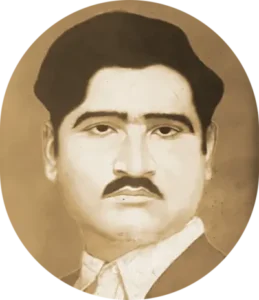
Like many others, I had a moment of realisation. I thought, “The kind of effort I’m putting into building someone else’s business – why not put that into building something of my own?” It wasn’t driven by money or success. It was more about legacy – what I would leave behind.
I had dabbled in a few entrepreneurial ventures from 2015, but they didn’t succeed. Then in 2017, I went back to India for two and a half weeks for my grandmother’s funeral. I was very close to her. It was my first experience of cremation, and in Hindu culture that ritual is profound. I realised that we come from nothing and return to nothing, so what we do in between must have substance and meaning.
During that time, I spent two weeks with my grandfather, who was mourning the love of his life. We spoke a lot, which I had never had the chance to do with him before. That’s when I learned about the family’s history with alcohol.
My great-grandfather, who migrated from Punjab to Assam, worked with the British as a translator for labourers. Through that, he met a Scottish officer.
Both had a passion for moonshining, and they began blending spirits together. They created what they called Indian blended scotch, since single malt wasn’t permitted for the common man at the time, and sold it illicitly.
That’s when it struck me – alcohol was in my blood. And from that moment, my journey into spirits began. [Main story continues following the sidebar below]
The journey continuesRutland Square Spirits’ signature expression is its Chai Spiced Scottish Gin, described by Founder & CEO Nishant Sharma as the world’s first and only Oolong white-tea-infused London dry gin. It’s 100% organic, with no artificial colouring or flavouring. The company also boasts the world’s first tea-infused rum, matured in sherry casks, a rich golden spirit infused with spices and very much following the same narrative as the gin.
“Whisky is very much up my sleeve now. I want to create exciting single malts and blended whiskies that carry the same tea narrative,” Sharma explains. “My plan is to mature whisky in Indian red wine casks. “Our tagline is ‘Scottish Spirit, Indian Soul.’ Distilled in Scotland, matured not only in sherry and American oak, but also in Indian red wine. That fills the gap and creates products that pay homage both to my past, where I come from, and to my present, where I live, call home, and where I hope to end my life one day. “For us, it’s never about selling for the sake of it,” he continues. “Rutland Square as a product is almost a byproduct of the story we bring. The narrative matters most. Out of the thousands of products on the table, why should you spend your money on ours? It’s about saying, give us a try. If you like it, come back. If not, we’ll work harder to improve ourselves.” |
People often see the end result of entrepreneurial success without appreciating the blood, sweat and tears that have gone into creating it. So tell me about the genesis of your brand.
It was a combination of heritage, timing and a search for purpose. The backstory gave me a strong emotional connection, but I also wanted to create something unique, rooted in craft and quality. Rutland gave us the natural environment, the community and the right conditions to bring this vision alive. It was less about following a trend and more about going back to something authentic, building on legacy but shaping it for today.

I’ll be honest, this business almost killed me. It gave me a heart attack and I ended up in hospital for a week. I’ll never forget the doctor coming in on Monday morning after two days of tests and saying to me, “Son, if you hadn’t come in on Sunday night, you would not have seen Monday morning.” That’s how close it was.
So it hasn’t been an easy ride, and even today it isn’t easy. I just turned 38 last week, and you can see the greys on my head, almost losing hair on the crown. It has been a challenge, but that’s the beauty of it. I’m enjoying the journey, even with the constant curveballs. Every day I’m managing, pivoting and growing.
When I first started, I thought it would be simple – a click-and-play situation. Whisky was in my blood because of my great-grandfather, and that’s what drew me in. But I was naïve. Sometimes ignorance is bliss, and I thought I had all the money in the world. I had savings from banking and, honestly, I was a little arrogant, thinking I could do whatever I wanted.
The reality hit quickly. Whisky takes enormous resources, and I realised I didn’t even have a drop in the ocean compared to what was needed. By then, the decision had been made. I had left a secure job, I had a newborn baby in my arms, and my family thought I’d lost my mind – walking away from a well-paying career and a comfortable life to risk everything. But like most Punjabis, who are hearty people, once you go all in, there is no turning back.
That’s how Rutland Square came to be. For me, the journey had to have purpose. It had to narrate who I am, where I come from, and why I’m doing this. Rutland Square is a prestigious postcode in Edinburgh, where the Indian Embassy sits. Back when I became a British citizen, I used to go there to get visas stamped on my passport to travel back to India. It became a symbolic passage home.
So I decided if I was building a brand, it had to be a gateway to India, a truly Scottish spirit with an Indian soul – just like myself. Rutland Square became the name, and from there the product was born.
When did you officially launch?
The idea started in 2017 after I returned from India, and by December that year I was deep into research. In 2018, I began the R&D journey. I didn’t want to rush out a product; it had to have substance and meaning. I had to learn the industry, really connect with the product. Whisky was always part of my family’s culture, and I drank it too, so I knew what I wanted. But since I couldn’t afford whisky at the time, I turned to gin.
Gin was booming then – from 2017 through to the pandemic, everyone was talking about it. It was easier to make, quicker to produce, and more realistic given my limited resources. Out of the thousands of gins on shelves, though, I had to find a way to stand out.
That’s when the tea story came in. India is the biggest tea-drinking nation, and Britain has its own deep love for tea. My great-grandfather’s story was rooted in Assam, the tea capital of India, so tea had always been hovering in my mind.
I went back with 200 variants of tea and spent three to four years in R&D before creating the recipe. We locked it in 2020 – that’s why the box says 2020 – and launched in 2021. That first attempt failed, because I didn’t know how to market non-alcohol products. I went back, researched more, and re-launched in 2022. From there, it started to grow slowly but surely.
Robert the Bruce spirit: If at first you don’t succeed, Chai, chai and chai again
How did you first take it to market? Through local bars and restaurants?
Actually, everyone said no at first. By then gin was overcrowded, and rejections were constant. But I refused to give up.
I began selling bottles by hand into every bottle shop I could, attending gin fairs and events with my wife, selling one bottle at a time. Starbucks indirectly did some of the marketing for us – chai lattes were trending, and because our gin carried the word ‘chai’, people made the connection. That gave us recall and curiosity.
Slowly, we went from selling 100 bottles to 500, then 1,000, and now we’re about to hit 100,000 cases.
100,000 cases – that’s extraordinary. And across how many markets? When did you make the leap from domestic to export?
The UK was proving difficult. Brexit made everything harder, duties were rising, and the ease of doing business disappeared. Export markets became more attractive – they placed bulk orders, and it was simpler in some ways than dealing with the UK system. India became my first major market, which felt right since the brand is a story that takes me back home. And it turned out to be something people connected with.
Initially, nobody was ready to give us access to market in India. Launching there isn’t easy: label registrations are complex alongside multiple protocols, regulations and logistical challenges to navigate, and honestly I was almost oblivious to how the alcohol sector worked on the ground.
So I started with travel retail instead. I almost literally broke down every single door. Everyone who said no, I just kept going back to them. I must have made 100 phone calls to Adani, to the point where they got so frustrated with my persistence they finally said, “OK, we’ll give it a try.”
I put in every penny I’d ever made, borrowed money, begged for money, maxed out all my credit cards, and eventually secured one positioning at Mumbai International Airport. That placement became the platform for GMR to say, “If Adani is doing it, we should try as well.” We launched with them last year and sold out in one month.
It was just 150 bottles, but with no brand advocacy, no brand ambassador support, no marketing, nothing – the product still sold out. That became a narrative we could push with evidence. It helped us scale from one Adani airport to six, then to every single airport. GMR followed the same trend. From there, the momentum took us into a few on-trade and off-trade channels in the UK.
But I also realised that to grow further, the brand needed a visible face. Nobody knew who we were, and I didn’t have the money to hire a brand manager or celebrity spokesperson. So I offered equity to an A-list Bollywood actor, Vivek Oberoi, and said, “Vivek, you come onboard, help us with scalability through your presence and the value you bring.” That decision helped us raise more capital and suddenly, the brand started going everywhere.
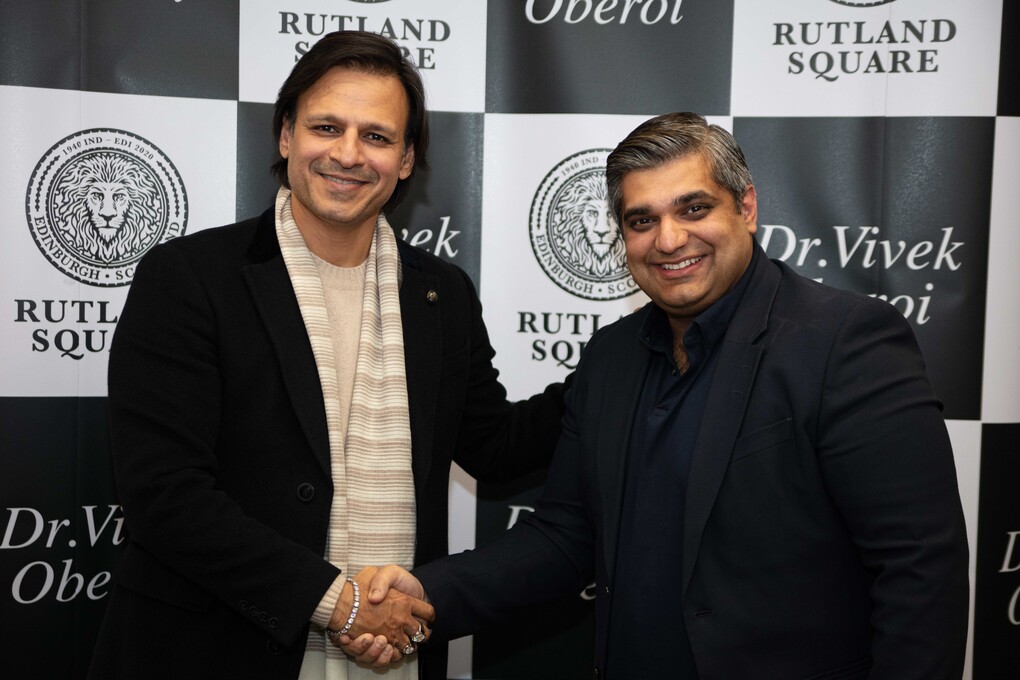

And tell me about the relationship with Gaurav Joshi, Founder of Platinum Liquids [and former Asia Pacific Director at Bacardi Global Travel Retail]. He’s representing you in Indian travel retail?
Not only Indian travel retail but global travel retail. We had very little knowledge of how the sector worked, and we needed hands-on experience. It was no longer just me alone, investing every single resource. We were now fighting against big, established teams, and there was no way I could win that battle alone.

So I began hiring. I brought in experienced people in the UK, set up a virtual office in India, and then hired Shyam [Boruah – Senior National Account Manager India] who had been with the Bulgari distributor. Bit by bit, we started building. I knew I also needed a sizable industry name. I approached Gaurav Joshi, but he rejected me outright the first time. Still, I remained consistent and persistent.
He liked the idea, appreciated my persistence and, most importantly, he liked the product. His view was that if something isn’t too niche, but still different, and has a story and legacy behind it, it’s easier to sell.
So we partnered with his flagship Platinum Liquids specialising in route to market for global travel retail and high-end domestic markets. With his experience and reputation, we quickly began gaining traction in key markets in the Middle East and SouthEast Asia and Pacific.
That’s critical, isn’t it? Knowing when to invest. As an entrepreneur, you have to pick those pivotal moments. If you sit still, you go nowhere. I went through the same thing – I built my company from a garden shed in West London with one person, and for three years I didn’t take a cent out, everything went into people and technology. It’s all about those calls you make between staying small or scaling up – and the timing. And you’ve clearly made a series of those calls, going from zero base to 100,000 cases.
Yes, it’s been a very tough journey. And even with 100,000 cases I don’t take a salary out of the business; every penny goes back into it. We’re investing in people, educating them, training them, and scaling through collective knowledge. I’m still living off my wife’s earnings, and she often asks me, “When is this going to end?” I keep telling her, hopefully soon!
Building stories and legacies
What’s the ultimate ambition?
Through this journey, I’ve learned that no ambition is too big or too small. From the start, my goal was about creating significance with our products and giving back, because when I began, nobody supported me beyond my wife and family. The outside world didn’t.
So my ambition is to build a group of companies that produce exciting, meaningful products in the alcobev sector. We’re not distracted by other industries – we want to focus on this and excel in it. If you ask me simply, I want to be as big as Diageo, or even bigger. Why should Diageo have all the fun?
The vision is to establish distilleries not only in Scotland but also in India, making them part of our group. We want to create products that people associate with powerful stories and legacies, products they can feel part of. That’s the space we want to dominate.
I noticed the Rosslyn Distillery name. Tell me about the distilling base behind Rutland, and also where you’re going with it.
Rutland Square doesn’t have its own distillery yet. We outsource under white label through a very exciting company called Summerhall Distillery. Summerhall produces Pickering’s Gin and also makes gins for the Cunard ships. They bottle Bladnoch and some other very interesting names in the industry.
At first, they weren’t interested in us. But Matt [Gammel], the Master Distiller and Co-Founder, felt there was an exciting story here and decided to give it a shot. He backed me with his skills, helped create the recipe, gave us guidance whenever he could, and sometimes even offered free bonded space to store our stock. He has supported the journey from day one and remains the producer for our gin – from the recipe to the bottling and everything in between.

We now have a small warehouse where we manage operations, but we’re in the process of acquiring our first distillery – I’m in the middle of an acquisition right now. I’m putting in every ounce of effort to get it over the line. It’s a whisky distillery based in Edinburgh, part of a much larger group that has fallen into distress. I’m trying to pull every possible string, and hopefully by December we’ll have a verdict.
Owning that whisky distillery will complete the loop for me – producing my own whisky – which is what first drew me to this industry.
Beyond that, the bigger vision is the Rosslyn Distillery project. Roslyn will be the future of distilling, designed to be 100% net zero from the outset, powered by hydrogen or whatever advanced technology we can deploy. The plan is to begin building toward the end of next year.
Alongside that, I also want to create a hotel on site. Not one we would operate ourselves – we’re not in the hotel business – but a property run by a leading hotel group, potentially in partnership with a brand from India. Edinburgh attracts around 4 million visitors every year, and while many distilleries showcase Scottish hospitality, I want to bring a fusion of cultures. The hotel would make us the asset owners and, at the same time, ensure a steady flow of visitors to the distillery.
Phase three of the vision is to build a whisky distillery in India, in my birthplace, Dibrugarh in Assam. It’s a small but very resourceful town, known for its fertile land, rice wine, country liquor and of course Kaziranga National Park, which draws many tourists.
But the region lacks visibility: tea tends to overshadow everything else. If I can build a distillery there, it will complete my story by taking the narrative back home, creating spirits from India for the world. Scotland is the backbone of whisky, and my journey is very much rooted here, but it has to circle back home at some point.
Honouring a grandmother’s spirit
What an extraordinary vision, Nishant. It’s an amazing story and I’ll take great delight in telling it. I’m full of admiration for what you’ve done. Let me ask you in closing: what’s the DNA of your approach as an entrepreneur?
As Founder and CEO, my role is to lead this company until the point where I exhaust my own resources, knowledge and skills. If the machine grows too big for me to operate, I’ll step back, bring in a skilled leader, and take on a board role to help direct the company. But the vision from day one has always been clear.
This company was born from the fire of my grandmother’s passing. She was a philanthropist in the truest sense; she gave without ever speaking about it.
I’ll share one story that stays with me. She was walking home from our family shop one day and saw a boy sitting in the rain with a dead child on his lap, crying. She took the child, buried it, and then adopted the boy as her own. Govind is still part of our family today, living in the same house. My father calls him a brother. He was never treated as an outsider.
If I can even achieve 1% of what she contributed to the world, I’ll consider my work meaningful. That’s why Rutland Square’s DNA is rooted in giving back to society. This isn’t about CSR as a tick-box exercise; it’s about what has been instilled in me from the beginning.
For example, we support women in the tea industry. We ensure they receive equal wages to men for plucking the tea that we bring over to the UK, tea that becomes part of our product. In time, I want to set up a foundation in my grandmother’s name to continue her legacy.
So the philosophy isn’t only to build a financially sustainable enterprise, but to create real impact for the people connected to it. How many lives can I touch through employment, through fairness, through giving back? That’s how I measure success. ✈
Focus on sustainability and social impactRutland Square Spirits is net-zero certified via the Net Zero Nation Accelerator Programme. Packaging is recyclable and locally produced; ingredients are organic and ethically sourced. In Assam, Rutland Square Spirits champions women in the tea industry by paying equal wages and partnering with the Donate A Meal Foundation to support nutrition for those in need. Sharma’s next venture is Rosslyn Distillery: an ambitious, forward-thinking project focusing on sustainability and innovation. The distillery will be AI-powered and zero-emission, combining traditional Scotch production with clean technologies. It’s designed to produce gin, rum, vodka and, eventually, the signature chai-spiced spirits, all under one net-zero roof. |
